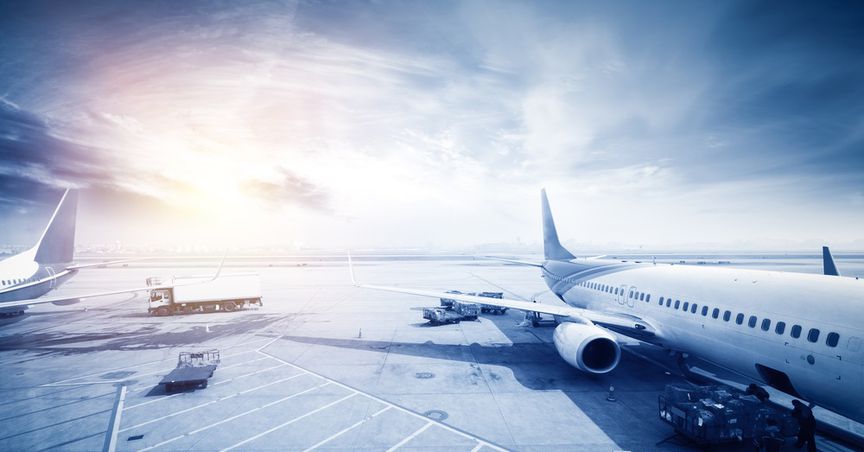With an unprecedented reduction in air traffic due to travel restrictions induced by the novel coronavirus, the global aviation industry is on the verge of collapse. According to IATA, in comparison to 2019, the overall revenues of the industry would plunge by 50 per cent in 2020. The global aviation would see 38 per cent lesser demand for passenger flights, and the global revenues are expected to decrease by $252 billion in absolute terms in 2020. Moreover, with stricter measures, flying would not be cheaper anymore, and the industry majors are seeking liquidity injections, loans, and tax reliefs from the government. Consequently, the industry is likely to see some consolidations in the coming.
Rolls-Royce Holdings AGM
Rolls-Royce has adapted to the current market conditions swiftly. The company reduced its direct procurement by altering its supply chain. Moreover, the company has placed more than 4,000 employees on furlough in the United Kingdom. According to media reports, out of 52,000 of the global workforce, the jet engine manufacturer is expected to reduce its workforce by 8,000 employees. The company would consult with affected employees in due course and will provide them with further details of the impact of the current situation on the size of the workforce before the end of this month.
Rolls-Royce Holdings Plc was initially expected to deliver a cash flow benefit of at least £750 million in the fiscal year 2020 as announced last month. The company took some steps to preserve cash such as cancellation of the final 2019 shareholder payment, which resulted in an expected cash flow benefit of £1.0 billion in the fiscal year 2020. In addition, Rolls-Royce Holdings managed to increase its additional revolving credit facility of £1.5 billion to £1.9 billion by a successful syndication process with a larger group of banks, which would further improve the Group's liquidity position.
The commercial aviation market, which may take several years to recover is expected to shrink significantly given the severity of the disruption caused by COVID-19. As the company is closely related to this sector, it is actively pursuing changes to Civil Aerospace division, to better align itself with the market conditions in the short term. In the best interest of its shareholders, the company is looking forward to establishing a more appropriate cost base and adjust to the prevalent conditions. The company is committed to devising new plans with its customer, employees, trade union and suppliers.
The company is well prepared to endure this period of unprecedented crisis, and it expects a significant net cash outflow during the second quarter given the reduced volume of air traffic caused by COVID-19. Given the present situation, the company is unlikely to provide guidance on the outcome for the full year.
However, the company has stated that it can carry out its operations backed by its robust financial position and strong liquidity position. The company backs its portfolio and the synergies between its divisions to capitalise on the long-term potential of the markets and make a transition towards a green energy alternative.
The outbreak of COVID-19 is impacting the countries and has claimed several lives across the world. While most of the formal sectors of the economy were devastated, the automotive industry has almost collapsed. The aircraft manufacturers have suffered a lot as the airline carriers have reduced orders of newer aircraft. For almost a quarter now, the aircraft have been grounded due to restriction at both domestic & international travel and the world undergoing lockdown. The IMF has warned that the global economy is likely to record a negative growth rate of 3 per cent, with the entire world sliding into recession.
In addition, the company is providing practical assistance to extend support to the vulnerable in these challenging times. The company is working to increase the supply of ventilators in the United Kingdom and is a part of the Ventilator Challenge UK Consortium.
Amid the severe financial crunch, various aviation companies are announcing job cuts, last month, British Airways planned to lay off 12,000 employees amid the catastrophe caused by the Covid-19. Ryanair reportedly will cut nearly 3,000 jobs along with a 20 per cent reduction in salaries. In a similar fashion, Virgin Atlantic announced 3,000 job cuts which account for 30 per cent of its workforce. Qatar Airways has warned of substantial job losses amid the crisis caused by the pandemic. Amid the travel restrictions induced by the pandemic, the business models of the airlines are jeopardised as most of the flights are grounded, and skies are closed.
It is imperative of the government to intervene as the lockdowns seem inevitable in the near term. The industry needs fiscal stimulus, tax reliefs, parking charges waiver, ease of access to loans. The employees being furloughed are offered 80 per cent of their salaries by the British Government under the job retention schemes.
Business overview: Rolls-Royce Holdings Plc
Rolls-Royce Holdings Plc (LON:RR) is a London, United Kingdom-headquartered multinational engineering company with a focus on power and propulsion systems. Rolls-Royce pioneers’ cutting-edge technologies which help to meet the planet's vital power needs by offering clean, safe, and competitive solutions. The company has a diverse base of customers ranging from armed forces, navies, nuclear energy customers to the aviation industry.
In the fiscal year 2019, the company’s annual underlying revenue was recorded at £15.3 billion, half of which could be attributed to revenue streams from aftermarket services. Rolls-Royce invested a hefty sum of £1.45 billion on research and development last year. The company is committed to grooming its employees into better professionals. In addition, the company endorses several University Technology Centres for scientific research around the world.
On 7th May 2020, Rolls-Royce Holdings Plc shares last traded at GBX 287.10, 2.25 per cent lower against its previous day closing price. Stock's 52 weeks High and Low is GBX 939.61 /GBX 249. At the reported price, the share was 15.30% higher than its 52-week Low and 69.44% lower than its 52-week High. The beta of the company stood at 1.47, reflecting higher volatility as compared to the benchmark index. The total M-Cap (market capitalisation) of the company stood at £5,671.33 million.




